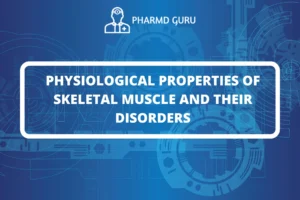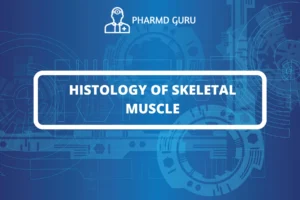The gastrointestinal tract (GIT) is a complex system responsible for the digestion and absorption of nutrients. While it usually functions smoothly, various factors can lead to disruptions in its normal processes, resulting in gastrointestinal disorders. In this article, we will explore common disorders of the GIT, understanding their causes, symptoms, and possible treatments.
SCROLL DOWN TO THE BOTTOM OF THE PAGE FOR ACTUAL NOTES
Table of Contents
- Introduction to Gastrointestinal Disorders
- Gastroesophageal Reflux Disease (GERD)
- Peptic Ulcers: Gastric and Duodenal
- Irritable Bowel Syndrome (IBS)
- Inflammatory Bowel Disease (IBD)
- Gallstones and Biliary Colic
- Pancreatitis: Inflammation of the Pancreas
- Gastroenteritis: Stomach Flu
- Celiac Disease: Gluten Intolerance
- Gastrointestinal Cancers
- Management and Treatment of Gastrointestinal Disorders
- Conclusion
1. Introduction to Gastrointestinal Disorders
Gastrointestinal disorders refer to a range of conditions affecting the GIT, including the esophagus, stomach, small intestine, large intestine, liver, gallbladder, and pancreas. These disorders can result from various factors, such as infections, inflammation, lifestyle choices, and genetics.
2. Gastroesophageal Reflux Disease (GERD)
GERD is a chronic condition characterized by the backward flow of stomach acid into the esophagus, leading to heartburn, regurgitation, and irritation of the esophageal lining. It is often caused by a weakened lower esophageal sphincter.
3. Peptic Ulcers: Gastric and Duodenal
Peptic ulcers are open sores that develop on the inner lining of the stomach or the upper part of the small intestine (duodenum). They can be caused by Helicobacter pylori infection or long-term use of nonsteroidal anti-inflammatory drugs (NSAIDs).
4. Irritable Bowel Syndrome (IBS)
IBS is a functional gastrointestinal disorder characterized by abdominal pain, bloating, and changes in bowel habits, such as diarrhea, constipation, or alternating patterns. The exact cause of IBS is not fully understood.
5. Inflammatory Bowel Disease (IBD)
IBD is a group of chronic inflammatory conditions affecting the digestive tract, including Crohn’s disease and ulcerative colitis. These conditions cause inflammation, ulceration, and damage to the intestinal lining.
6. Gallstones and Biliary Colic
Gallstones are solid particles that form in the gallbladder, and biliary colic occurs when a gallstone obstructs the bile duct. This can lead to intense pain, nausea, and vomiting.
7. Pancreatitis: Inflammation of the Pancreas
Pancreatitis is the inflammation of the pancreas, often caused by gallstones or excessive alcohol consumption. It can lead to severe abdominal pain and digestive disturbances.
8. Gastroenteritis: Stomach Flu
Gastroenteritis is an infection or inflammation of the stomach and intestines, commonly caused by viruses or bacteria. Symptoms include diarrhea, vomiting, abdominal cramps, and fever.
9. Celiac Disease: Gluten Intolerance
Celiac disease is an autoimmune disorder in which the ingestion of gluten, a protein found in wheat, triggers an immune response that damages the lining of the small intestine, leading to malabsorption of nutrients.
10. Gastrointestinal Cancers
Various types of cancers can affect the GIT, including esophageal cancer, stomach cancer, liver cancer, pancreatic cancer, and colorectal cancer.
11. Management and Treatment of Gastrointestinal Disorders
Treatment for gastrointestinal disorders varies depending on the specific condition and its severity. It may include lifestyle changes, dietary modifications, medications, and, in some cases, surgery.
12. Conclusion
Gastrointestinal disorders can significantly impact a person’s quality of life and overall health. Early diagnosis, proper management, and lifestyle adjustments are crucial in effectively managing these conditions and minimizing their impact on daily life.
ACTUAL NOTES




